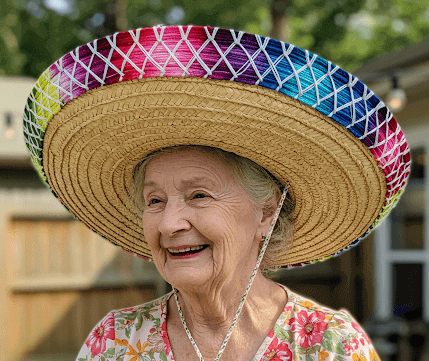
Halloween is a holiday that many Americans wait for all year to bring out their creative costumes—funny, crude, or scary. Inevitably, some of these costumes will be judged by others as insensitive. Recently, the issue made national headlines when fourteen staff members of Middleton Heights Elementary School were criticized for offensive Halloween costumes. Playing off of the controversies surrounding President Trump’s proposed border wall, a group of Middleton staff members held maracas and wore sombreros or ponchos marked with the phrase “Mexican,”, while another group had Trump’s MAGA slogan plastered across a makeshift border wall in reference to his border security plan. Both groups embodied these partisan and offensive labels into costumes they then wore to the elementary school. On October 31, 2018, photos of staff members in these costumes were published on the Middleton School District’s website, which then quickly spread across the nation.
The public, it seemed, was not amused by these Halloween frivolities. By November 3, the participants were placed on paid administrative leave while further investigation took place. Superintendent of the school district Josh Middleton stated that “This type of behavior has no place in education and certainly is not tolerated here at Middleton School District.’’ He admitted that this was “an unfortunate incident of very poor judgement,” but expressed that this is not representative of either the school district or the teachers. Within days, it was revealed that all of the involved staff, except for Principal Kim Atkinson, were reinstated and the investigation only discovered “love and commitment” of the staff members involved. Additionally, the staff involved in the incident released an apology. To clarify the purpose of the after-school event, the superintendent claimed that it was a team-building exercise with a focus on kindness and education regarding other cultures where staff members were divided and named after countries.
Similarly, the intentions of the involved staff members of Middleton Heights were argued to be, at worst, misguided and good in nature. News of the staff members’ consequences and the negative response across the nation spurred the creation of an online petition in favor of the staff members called “Save our Middleton Staff, Teachers, and Principal.” Supporters also left comments on the petition, such as “Unfortunately, the photos were very controversial. However, we believe it’s been blown out of proportion,” and “I support our teachers 100% and know they did not do this as racial hatred! They are amazing individuals and I’m proud to have them teaching my children!” The petition and its supporters argued that the events should not obscure the ability of the involved staff members of Middleton Heights to be loving and supportive of students.
But is the image created by their costumes too much to overcome in regard to what some students might expect of an educator? Despite the intentions of the Middleton staff members, there is concern about their ability to educate and foster inclusive environments for minority students. The 2017 U.S. census reports that Middleton has a Latino population of 9.5 percent, and Idaho Ed Trends reports that the elementary school has a Hispanic demographic of 12.9 percent; these facts could worry those that say these costume antics will displease or exclude significant populations of students. A former public school teacher, Meredith St. Clair, said in a letter to the school board that “I feel that everyone does have a right to free speech and their own beliefs, politically and otherwise, but we cannot bring these into the classroom.” St. Clair argued that “If we’re doing this overtly, what are the covert, the underlying messages that are being sent to these children on a daily basis” (Katz & Moeller, 2018)? Other critics have taken to the internet to raise support, creating a petition called “No Racism in Middleton School District” that highlights a set of demands to approach racism—including “culturally relevant curriculum, policy change, review of hiring practices, and district wide training” (Mondragon, 2018).
The counter-petition involves individuals from across the U.S., and not simply from the school district or Idaho; likewise, its point is integrated into a national conversation over racial sensitivity. Outrage over this seemingly small instance has grown national in scope. Those thinking more about how much controversy ill-chosen costumes bring up are asking the question: How much do the supposedly good intentions of the staff members wearing the offensive costumes matter?
Discussion Questions:
- What values are in conflict over the Halloween costumes at the center of this case?
- Are the costumes an instance of speech or expressive conduct? Why or why not?
- How should the school district react to those educators that were involved in this party? What principle are you basing this reaction on, and do you think it will be useful for the next instance of controversial Halloween costumes?
- Are there conditions under which such culturally insensitive costumes can be worn?
Further Information:
Foy, Nicole. “Frustrations Fly at Middleton School Board Meeting.” Idaho Press, 13 Nov. 2018, www.idahopress.com/news/local/frustrations-fly-at-middleton-school-board-meeting/article_2fdd6358-7ff7-5f07-be14-7411450ab370.html.
Foy, Nicole. “Middleton Costumes Expose Racial Fault Lines in Canyon County.” Idaho Press, 17 Nov. 2018, www.idahopress.com/news/local/middleton-costumes-expose-racial-fault-lines-in-canyon-county/article_82cdc0b5-16a8-596a-afe8-7f78e7fe1bb0.html.
Katz, Michael, and Katy Moeller. “Middleton Heights Staff Placed on Administrative Leave over Controversial Halloween Outfits.” Idahostatesman, Idaho Statesman, 3 Nov. 2018, www.idahostatesman.com/latest-news/article221074560.html.
Mondragon, Estefania. “Sign the Petition: No Racism in Middleton School District.” MoveOn Petitions, 2018, https://petitions.moveon.org/sign/no-racism-in-middleton.
O’Kane, Caitlin. “Thousands Sign Competing Petitions over Teachers Who Wore Border Wall Costumes.” CBS News, CBS Interactive, 6 Nov. 2018, www.cbsnews.com/news/thousands-sign-competing-petitions-over-idaho-teachers-who-wore-border-wall-costume/.
Authors:
Sophia Park & Scott R. Stroud, Ph.D.
Media Ethics Initiative
Center for Media Engagement
University of Texas at Austin
April 3, 2019
Image: Stock Photo / Pixabay
This case study can be used in unmodified PDF form for classroom or educational settings. For use in publications such as textbooks, readers, and other works, please contact the Center for Media Engagement.
Ethics Case Study © 2019 by Center for Media Engagement is licensed under CC BY-NC-SA 4.0



